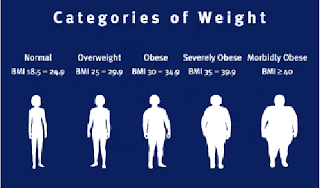 That's what one elderly lady at our church told Kerie not too long ago. It is a term that you don't hear often, but in this lady's younger days, it was common. Folks who lived in poverty couldn't afford much food. Even in America, many could only get what was needed to survive. My own parents recall days when most meals consisted of potatoes and beans, and those only went so far. So a poor person wore their poverty on the outside as they were often thin.
That's what one elderly lady at our church told Kerie not too long ago. It is a term that you don't hear often, but in this lady's younger days, it was common. Folks who lived in poverty couldn't afford much food. Even in America, many could only get what was needed to survive. My own parents recall days when most meals consisted of potatoes and beans, and those only went so far. So a poor person wore their poverty on the outside as they were often thin.Being too thin and poverty aren't really connected much in our nation these days. Yes, there is starvation in our own nation, but some of the most poor among us suffer with obesity as food programs, government assistance, and cheap, high calorie foods have become major parts of our society.
Perhaps that's why the phrase is not heard much nowadays. But you do hear what I heard today: You look sickly. Sickly? Really? My ideal weight range (for a guy my height) is 110 to 159. I weigh 145. Sickly?

I reached my goal of 145 about a month ago, and I've held steady since. I've been approached by a few folks (mostly older ladies), who've asked, "You aren't going to lose anymore weight, right? I think you've lost enough. You look sick!" These same ladies, with the exception of my mother, didn't come to me when I was at 285 pounds and say I looked sick. They are the type who love to cook for others. While that is not wrong, they are the grandmotherly type that try to shove deep-fried and sugary foods in your mouth when you visit because you need the kind of nourishment that only they can offer. Deep down, however, I think there are two main reasons behind these sickly comments.
It's Psychological
Somewhere, deep within the recess of the brain, when we see someone lose weight drastically, we subconsciously think something is wrong. I believe it is a normal, unconscious reaction. Drastic weight loss can definitely be an indicator of a major health issue, and it is very visible. It is an indicator that something is going on. That's why just about any health history form you fill out will ask if you've lost a large amount of weight recently and if it was intentional or not. I have experienced this myself with others who've lost weight. Your first reaction is that the person looks sick. It's unintentional, and once you know they are doing it purposefully and you start to get used to their new looks, the sickly thoughts start to dissolve.
We Don't Know What a Healthy Weight Looks Like
We are a society of extremes. In recent history, ulta-thin models were touted as the standard of beauty. They were sometimes emaciated-looking with no body fat and no muscle. There's been a great amount of backlash and rightly so. But the backlash has come from a society that is dramatically increasing in obesity. We are confused. On one hand, there is danger in starvation and eating disorders so we can meet an arbitrary standard of beauty. But as many of us get fatter and fatter, there needs to be a backlash there as well. We're losing touch with reality in two different directions.
It has also come from the acceptance of the obesity epidemic in America. We don't really have a gauge on what a healthy weight is any more. If you looked at the vast majority of Americans in the history of our nation who were at a normal weight and compared them to the society of today, they'd probably look sickly. We've even had to add categories to the obesity scale. It used to be underweight, normal, and overweight. Obesity goes beyond overweight, and it has now been divided into three classifications: severe, morbid, and super. As more and more people enter into the severe, morbid, and super categories, we start to see those who are overweight or just serverly obese as normal. That's because it is becoming the new norm. Many of us would not be classified as obese but would qualify as overweight. Normal weight is becoming less and less common. We see it less and see truly underweight people rarely. We have a new normal.
Let us approach obesity in our nation the way I was approached today! You look sickly, and I am worried for you!


No comments:
Post a Comment